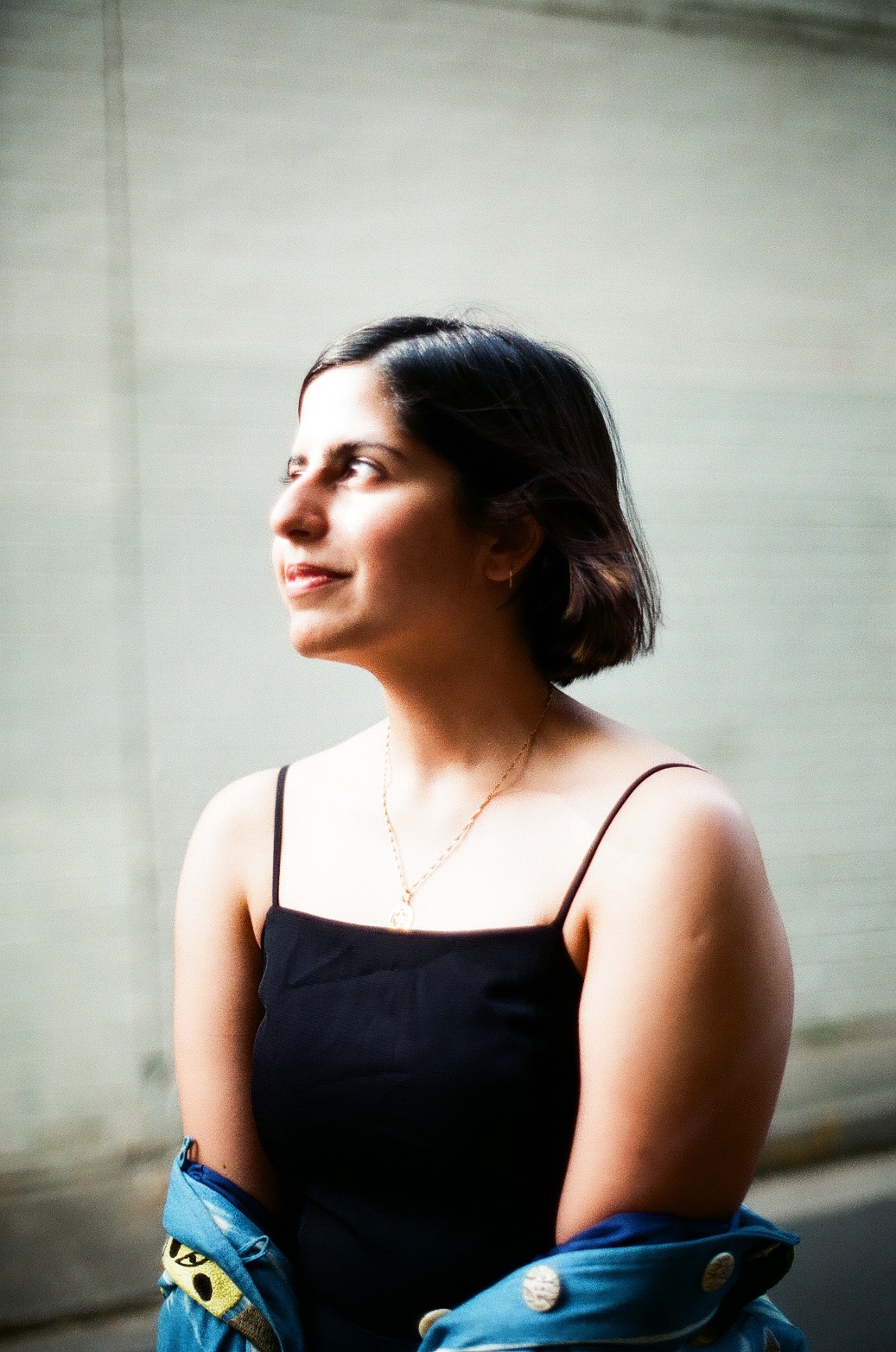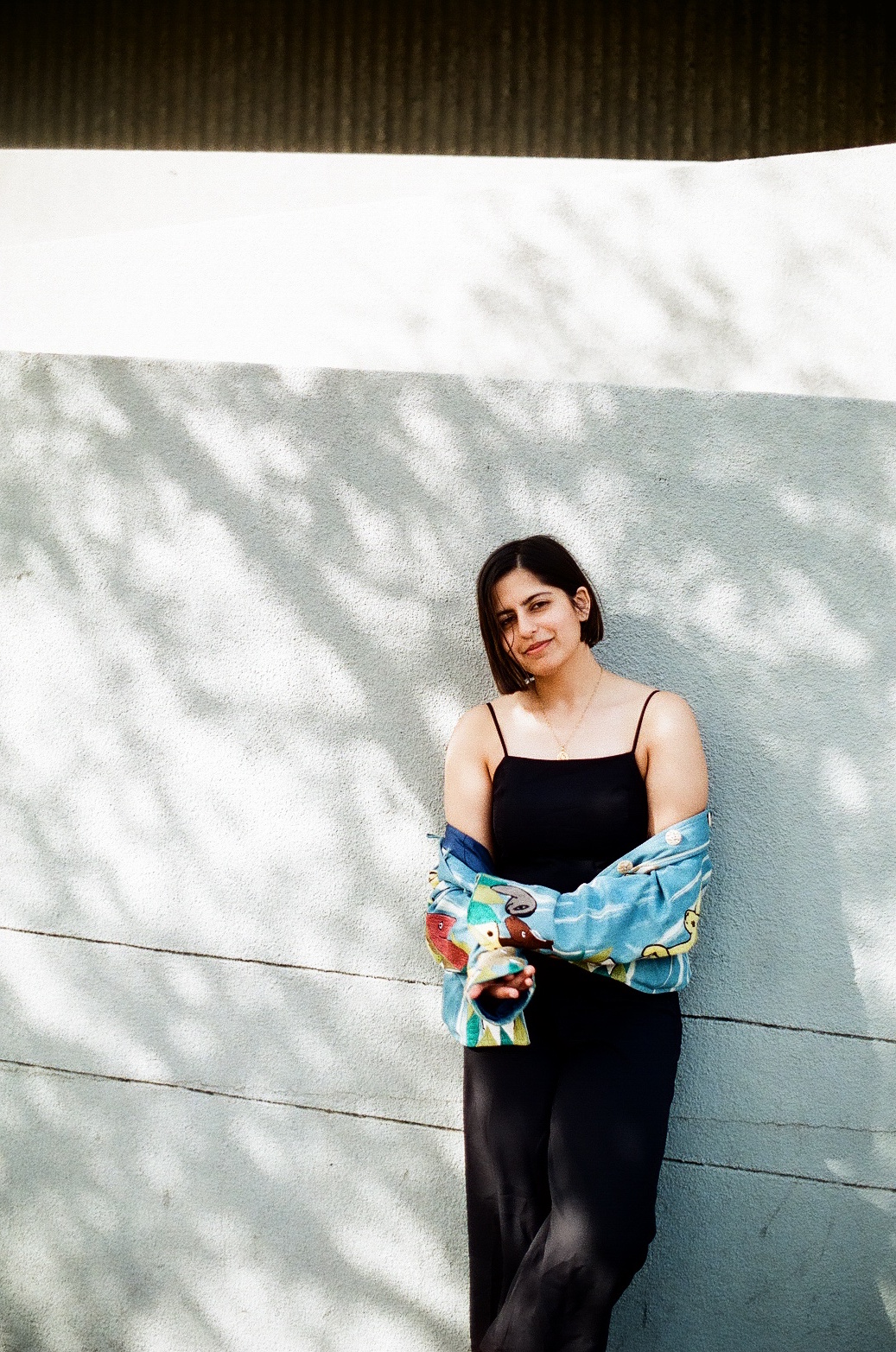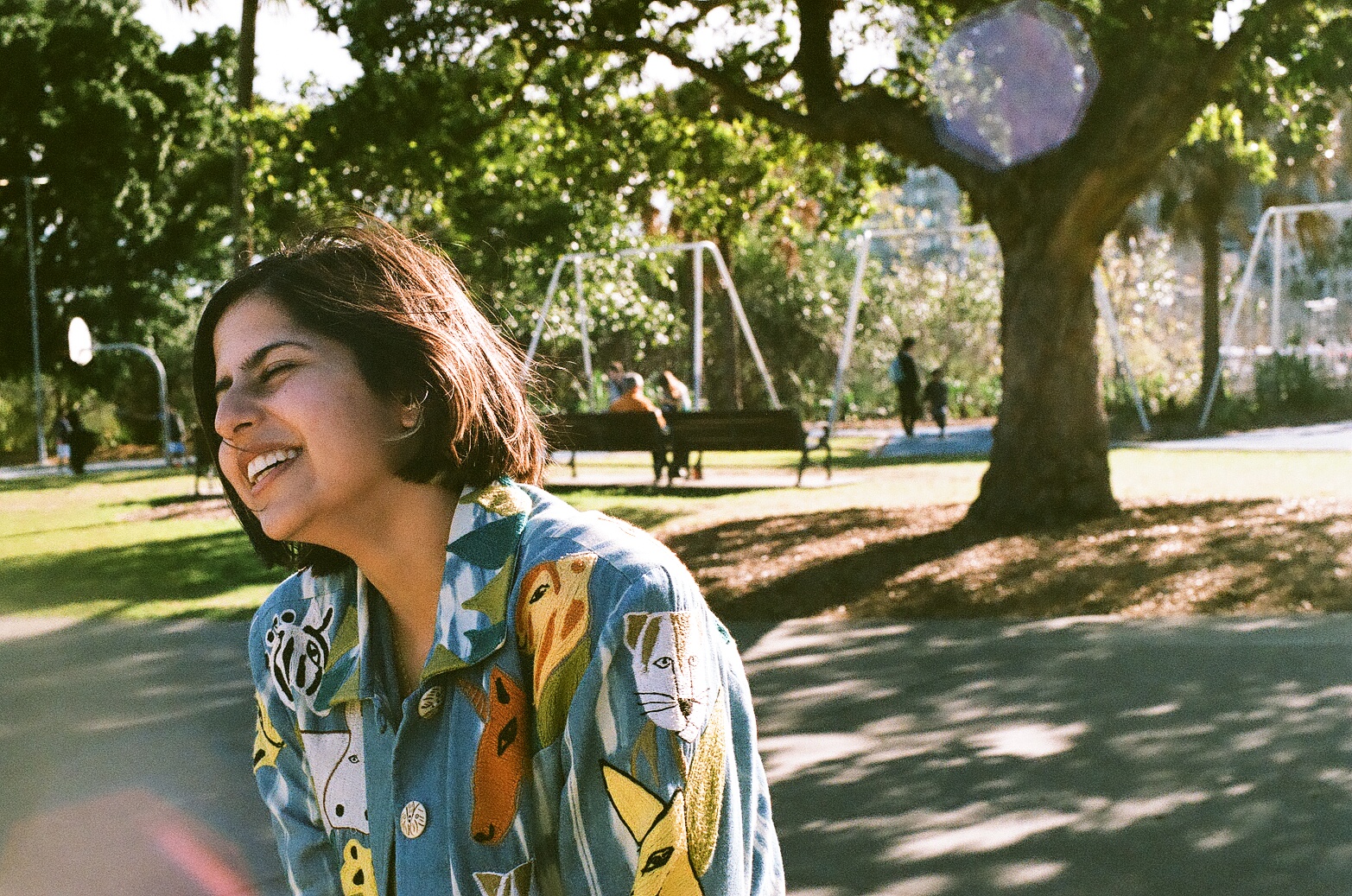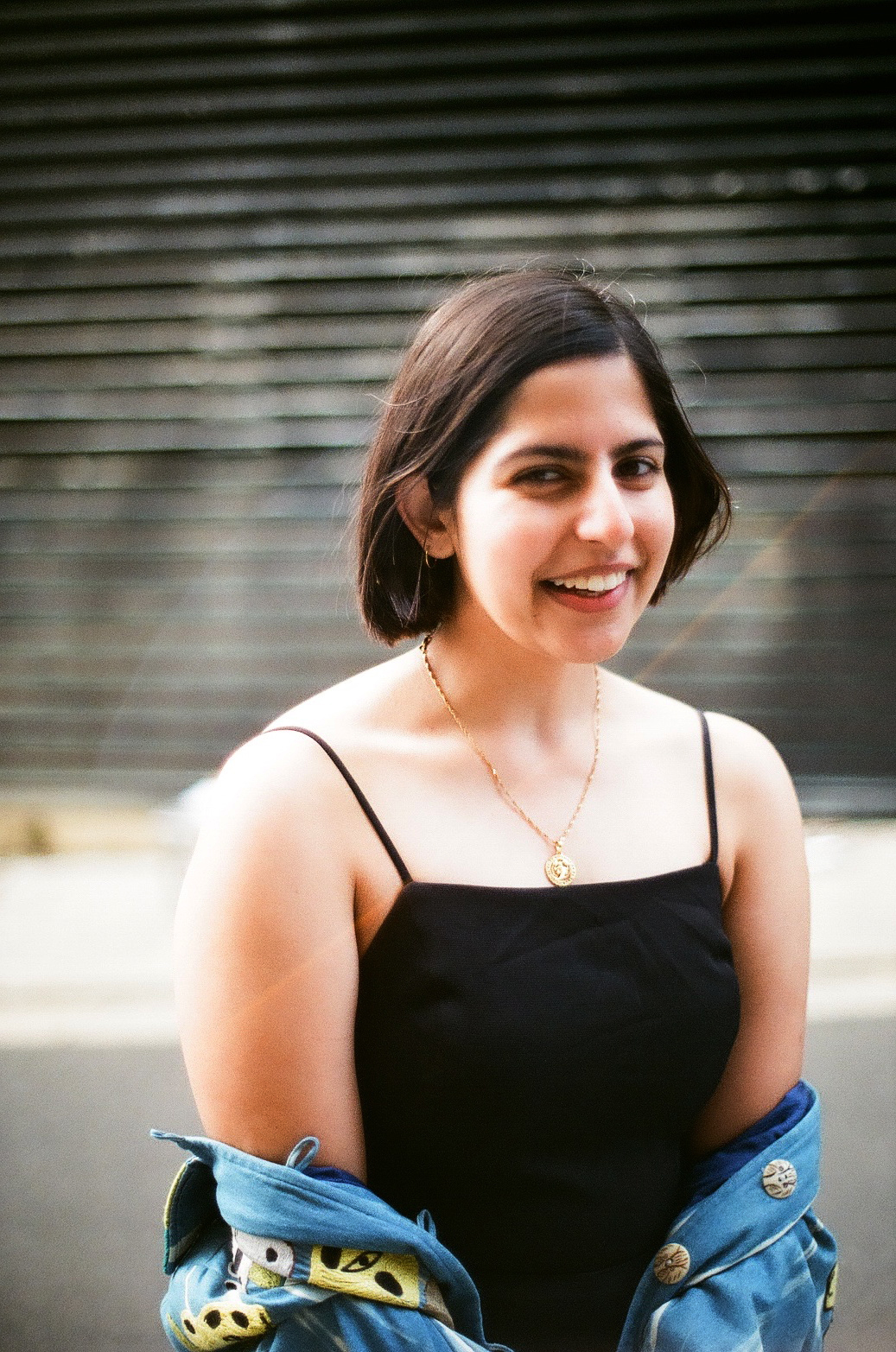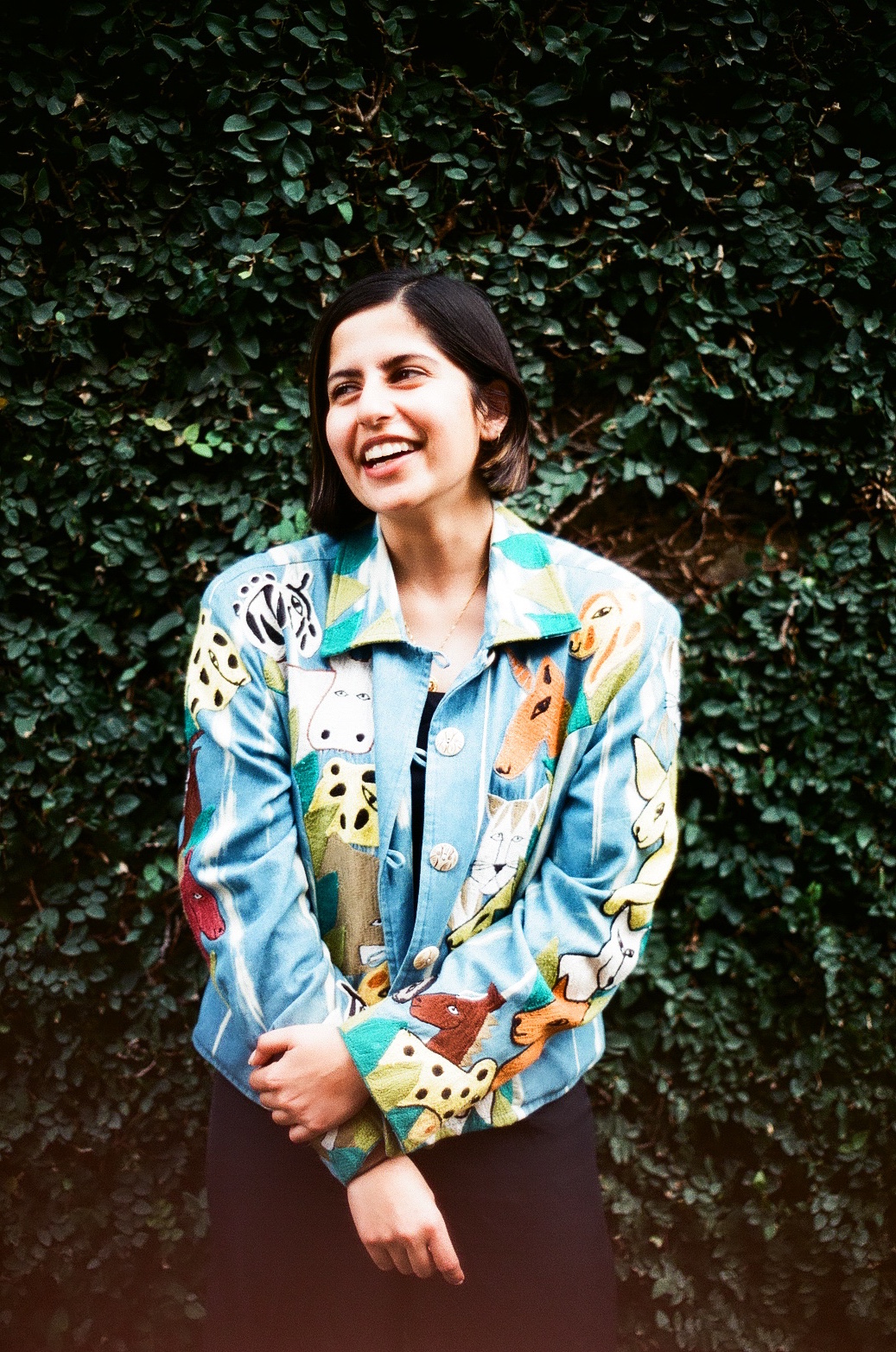Interview #78 — Tanya Ali
By Mari Stuart
Tanya Ali is a Pakistani-Australian broadcaster, writer and musician making art on Gadigal-Wangal land. She is also the Music Editor of Peril Magazine.
At FBi Radio, she hosts Monday Arvos and co-hosts Agenda. Across all disciplines she dabbles in, her practice persistently circles back to themes of culture, race, politics and identity.
Tanya speaks to Mari Stuart about working in radio, navigating being a person of colour in the Australian media landscape, and her many forms of creative practice.
The land of radio (and let’s face it, Australian media in general) wasn’t exactly full of voices from people of colour, especially when you and I were growing up. What drew you to becoming a radio broadcaster, and was it something you’d strived for from a young age?
You’re so right! I guess while the media I consumed as a kid was overwhelmingly white, media has always been a part of my life in a pretty pervasive way. My parents are both journalists, and when they had first migrated to Australia, one of my mum’s first jobs here was at SBS in radio. Growing up, radio was always a background soundtrack of sorts, but I don’t think it ever occurred to me as something I wanted to pursue until I was a teenager.
I was actually a painfully shy kid, but when I was in Grade Five did a weekend course in debating and all of a sudden realised that public speaking was something I enjoyed, and wasn’t as terrifying as I had previously thought. I’d also always lived and breathed music, and knew from a young age that I wanted to work with music in some way—though it definitely felt like a pipe-dream until very recently.
At about thirteen or fourteen I discovered triple j. It’s interesting to think how quickly radio then became a fixture of my life. I would constantly be tuned in, and broadcasters like Marieke Hardy, Linda Marigliano, Nina Las Vegas and Elize Strydom were all huge role models to me. By the time I graduated high school I was sure I wanted to give radio a go, and the next year I got accepted into FBi Radio’s Presenter Training course. Under the mentorship of some incredible people (shoutout to radio powerhouse Caroline Gates!), here we are now, where radio is a pretty major part of my life and career currently.
It’s only been over the past couple of years that I’ve realised how white the radio landscape in Australia is. It’s a shame because I think radio is an incredibly powerful medium of storytelling, and a pretty incredible—and uniquely accessible—space for all kinds of different voices to be heard, both literally and figuratively. I think especially with the advent of podcasts, radio is being seen as a changing medium though, and I do hope that kids of colour today see it as a viable option.
It’s only been over the past couple of years that I’ve realised how white the radio landscape in Australia is.
Do you have any advice for emerging radio broadcasters?
Everyone has a story and no matter how much the little voice at the back of your head tells you it’s not important, it is. If you have an idea, do the thing—whether that means borrowing some equipment, pitching it to a radio station or program you admire, or just making something with your phone microphone. Also, there is no such thing as a ‘radio voice’—writing for and speaking on radio are all totally learnable things. The most important thing is to never stop listening. The best radio is made by people who clearly love radio—not just the sound of their own voice. Listen as widely as you can and before you know it, you’ll subconsciously be taking your learnings into what you make.
I can’t sing the praises of community radio enough. If you’re starting out, community radio is often such a nurturing space in which you can take risks, be supported and learn from some of the most passionate broadcasters around. If you’re even remotely interested in radio as a medium, give it a red hot go—you never know until you try.
Along with hosting Monday Arvos and Agenda on FBi Radio, you also have a segment called Race Matters which was recently announced as a finalist for the CBAA Community Radio Awards. Why did you start this segment?
Community radio in Australia is a great, broad and incredibly diverse network, and to me a big goal of community radio as a whole is bringing to light people and voices who aren’t often heard. FBi Radio is an inclusive space in many ways—for instance our volunteer base has a super impressive proportion of LGBTIQA+ people within it—but I’d kind of noticed a lack of voices of colour on air, and even moreso a lack of discussions of race, culture and representation, despite the fact that we were starting to have these conversations off air as a station.
The idea of having a segment as part of Up For It, our flagship breakfast program, wasn’t actually my idea—it was Up For It producer Kyle Fensom’s brainwave, and he pitched me as host. So I guess I don’t have a super crystallised rationale about why it was started, but it definitely fills a gap in programming and hopefully paves the way for a whole lot more content led by people of colour talking about whatever they want to talk about, both encompassing and apart from race and culture.
What are some of the most memorable highlights from past episodes of Race Matters?
I really enjoyed chatting with Ayeesha Ash, who’s the co-leader of Black Birds, a Sydney-based company responding to the lack of representation and misrepresentation that women of colour in the arts face. We had a great conversation about Solange and this Instagram video came out of it, which is maybe the high point of my year so far.
I think I’m most excited though about the new iteration of Race Matters. It sees a team of four new badass hosts—Georgia Mokak, Rhyan Clapham, Sara Khan and Darren Lesaguis—who all bring different perspectives and experiences to the table. So far they’ve all absolutely killed it and I’m so pumped to hear them keep coming out with gold.
Everyone has a story and no matter how much the little voice at the back of your head tells you it’s not important, it is.
You work across a number of disciplines, from radio and writing to DJing (as one half of Deep Tan), yet as you’ve mentioned your practice always comes back to themes of culture, race, politics and identity. How do these ideas translate across different forms of communication?
It’s actually been so interesting for me to notice how they do translate, because it’s definitely not a conscious thing. I think it comes down to always trying to make sure I’m being mindful of all intersections and bringing new voices to light as much as I possibly can.
Doing a lot of creative things across a bunch of disciplines, I often feel worried about taking up more space than I should as a woman of colour who is pretty privileged across all fronts. So I guess I try to uplift other people in everything I do and make.
Through Peril and FBi Radio you spotlight a lot of music you love, a lot of which is made by Asian-Australians and women of colour. Can you tell us some of your favourite artist at the moment and why they’re so close to your heart?
Oh my gosh, where do I start!? There is so much good music being made right now and I’m so excited about all of it. I really love the new single from Empress Of, and Mitski’s record Be The Cowboy is a real special one. Okenyo’s EP The Wave encapsulated the start of my 2018 perfectly, and her new single is even more killer—I’m so excited to see the gold she keeps on coming out with. My album of the year so far is without a doubt Blood Orange’s Negro Swan. If you haven’t listened to it yet, I’m not kidding—you HAVE to. And make sure you listen to it at least twice, the whole way through, because it is a grower but once you’re in love with it you might not be able to listen to anything else—just a cheeky warning!
What artists did you listen to growing up and how have they shaped you?
One of my strongest memories is of religiously watching Rage and Video Hits every Saturday morning, so I definitely grew up on pop. In 2008 though, a little band called Operator Please came on the scene and I’m not fully sure what it was but I got totally obsessed. That lasted for a solid few years and 100% shaped me. I also really loved Washington, I think she inspired my teen self to properly try my hand at music and singing and she’s still definitely someone I look up to.
Doing a lot of creative things across a bunch of disciplines, I often feel worried about taking up more space than I should as a woman of colour who is pretty privileged across all fronts.
So I guess I try to uplift other people in everything I do and make.
Tell us about your music practice—Who are your influences? Do you have plans for a release?
My music practice is very loose at the moment. I have a bunch of songs that I’ve kind of written from 2010 till now that I work on from time to time, and this year is the first year I’ve actually played a few gigs. It’s really fun but really hard, and it’s something I’m still working out—how to find time to do something I really like but am not sure how it fits into my life right now.
My influences kind of range from artists I really loved growing up to artists I’m vibing at any given time. I’m amazed by Nilüfer Yanya’s approach to songwriting, and it’s kind of a dream to be able to one day write songs like that. Blood Orange is an obvious one—Dev Hynes’ instincts when it comes to production are to me incomparable.
And speaking of production, I think that’s what holds me back when it comes to the idea of a release. Production is really, really tricky to me. Even when you have the tools (i.e: a laptop) it’s so hard to get the exact sound/s you’re looking for. And until I think I get that down pat, I probably won’t be releasing anything. But hopefully that’s something I get a handle on soon, because there are some songs I really want to get out into the world.
You recently co-curated an exhibition in Sydney for Peril Magazine called Ritual / Resistance. It brings together multi-disciplinary Asian-Australian artists exploring what it means to be a settler-migrant, living and creating on the sovereign lands of the Gadigal people. What does this mean to you?
It’s so freakin’ complex living on stolen land as an immigrant. The simple truth is I shouldn’t be here. But here I am, taking space with my voice and my creative endeavours, and to be honest I don’t really know what that means.
For me, making sure I use my privilege to elevate other people and step back whenever possible is vital. At the same time that also feels like an almost paternalistic thing to say, and I really hate that — but I think it’s really, really important to talk about these things. There is a hell of a lot of anti-Blackness that exists in our immigrant communities and I think it’s imperative for non-Indigenous creatives of colour to actively fight against that with everything we do. Often, that means listening. We need to do so much more listening.
What advice would you give to yourself from 5 years ago?
Five years ago, I’d literally just graduated Year Twelve. I think I had a pretty good attitude towards creative and professional things for an eighteen-year-old. I think I’d tell myself to enjoy life a little bit more, and take some more risks. For the past four years I’ve been so reserved and held back so much of my genuine personality. I feel like over 2018 I’ve gotten a whole lot more in touch with that, and it’s really exciting. And you know what, while I wish I had figured some stuff out about myself sooner, maybe it’s all been an important journey or something… it hasn’t all been a good time but I think it’s all contributed to my ~growth~. So maybe I would just give myself some super generic advice like ‘seek out every dog you can find. Never be afraid to ask to pat a cute dog on the street!’
It’s so freakin’ complex living on stolen land as an immigrant. The simple truth is I shouldn’t be here. But here I am, taking space with my voice and my creative endeavours, and to be honest I don’t really know what that means.
What are you reading?
I caught Min Jin Lee at Sydney Writers’ Festival earlier this year and was blown away. She literally quoted Rihanna’s Diamonds at the end of her talk and I cried? It was unbelievable. So obviously I rushed outside and bought her book, Pachinko and I’m still working my way through it because I’m finding it difficult to find time to read but I absolutely love it so far and couldn’t recommend it enough.
How do you practice self-care?
I’m not going to lie—I’m not very good at it yet, but I’m always working to get better. I’m working on swimming more—swimming is something that I love starting my day with as hard as it is to get myself out of bed to go do it. Once I’m in the pool, I’m 100% calmer and it’s also really novel to do a form of exercise where you can’t use your phone or listen to music. Also trying to light a nice smelling candle as often as possible, and take a nice warm bath once in a while.
What does being Asian-Australian mean to you?
As a South Asian who is often questioned when referring to myself as Asian-Australia— being Asian-Australian is a privilege. The first time I felt like I connected with the term, I was writing an essay for uni about the Asian diaspora in Australia. And I’ve never felt more connected to a topic I’ve researched in my life.
Despite Asia being this enormous, multiplicitous content, Asian-Australians all have congruous experiences in so many ways. Being Asian-Australian is solidarity. It’s making Australia a home when it’s maybe seldom felt like one that deserves us.
Being Asian-Australian is solidarity. It’s making Australia a home when it’s maybe seldom felt like one that deserves us.
Find out more
Interview by Mari Stuart
Photographs by Leah Jing McIntosh


